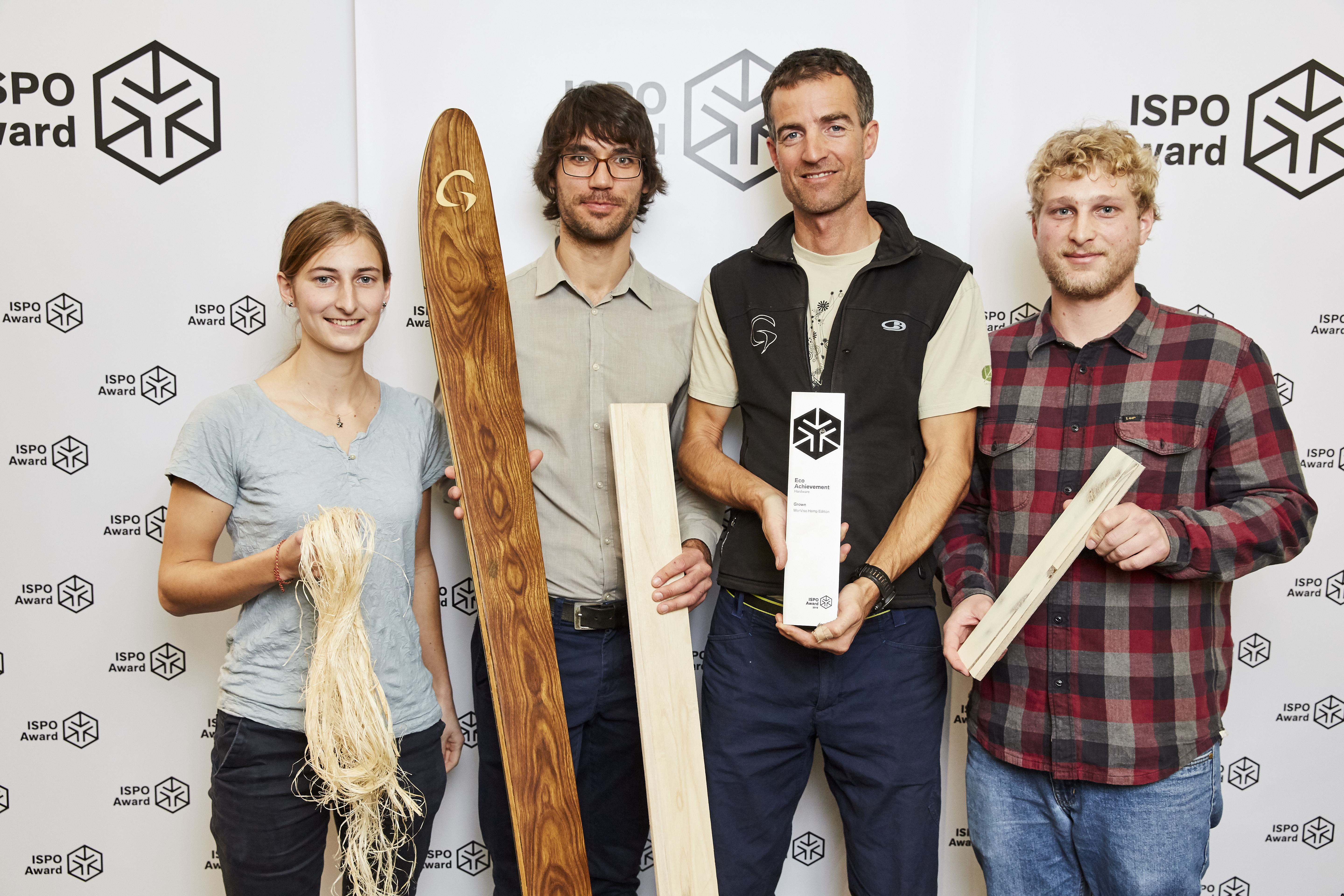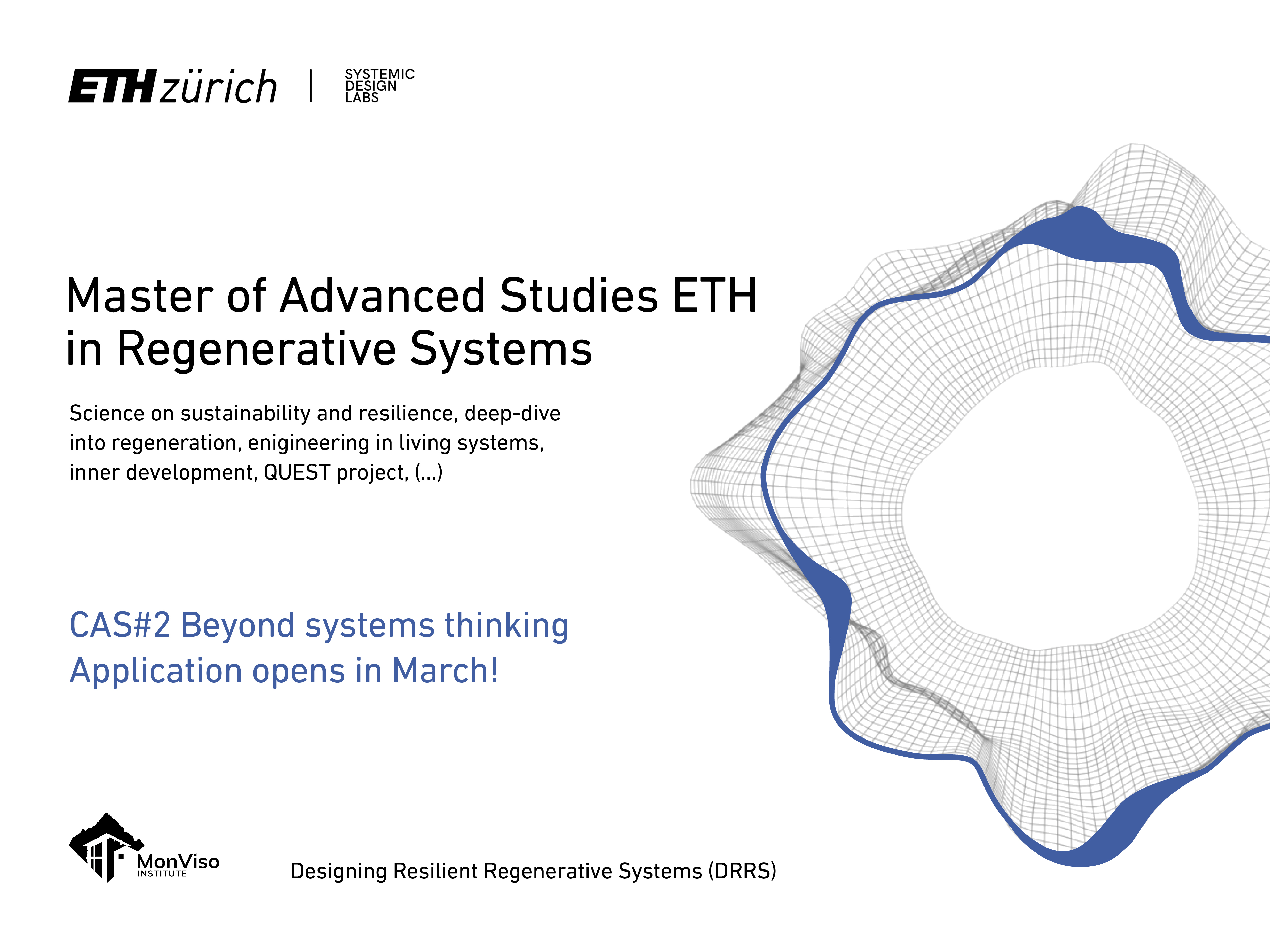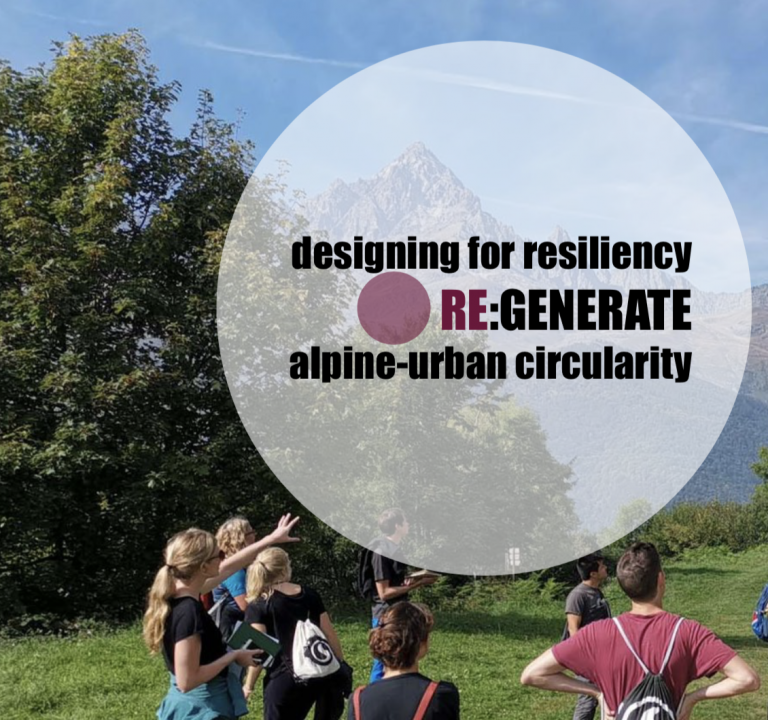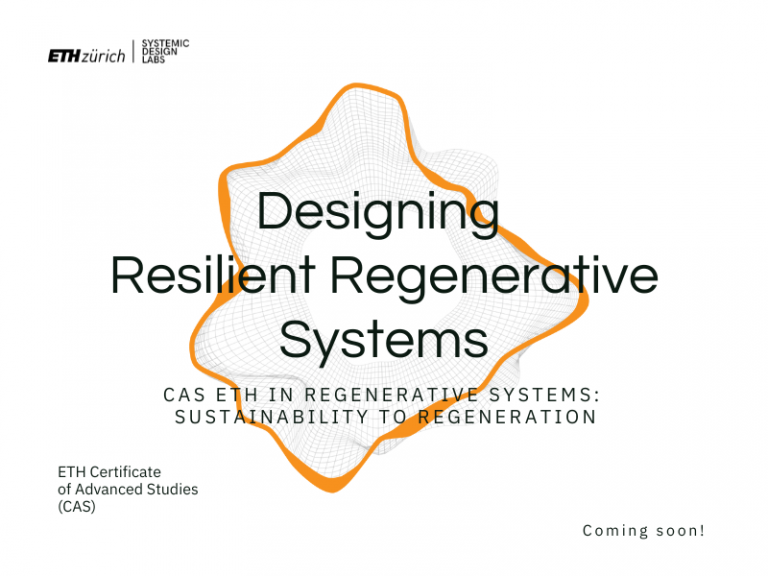Beyond systems thinking in Norwegian midsummer
Michèle Rosenheck has been running the Laufbahnzentrum Zurich (Career Center) for over seven years. The 56-year-old has dedicated her career to the professional and personal development and further education of young people and adults. Now, she is giving herself another boost with the CAS ETH Beyond Systems Thinking as part of the MAS ETH in Regenerative Systems*.
A conversation with Michèle Rosenheck held by Michael Grimm, the DRRS Programme Coordinator, about a physically and mentally challenging field design trip in the Norwegian midsummer and the art of pausing in turbulent times of increasing complexity.
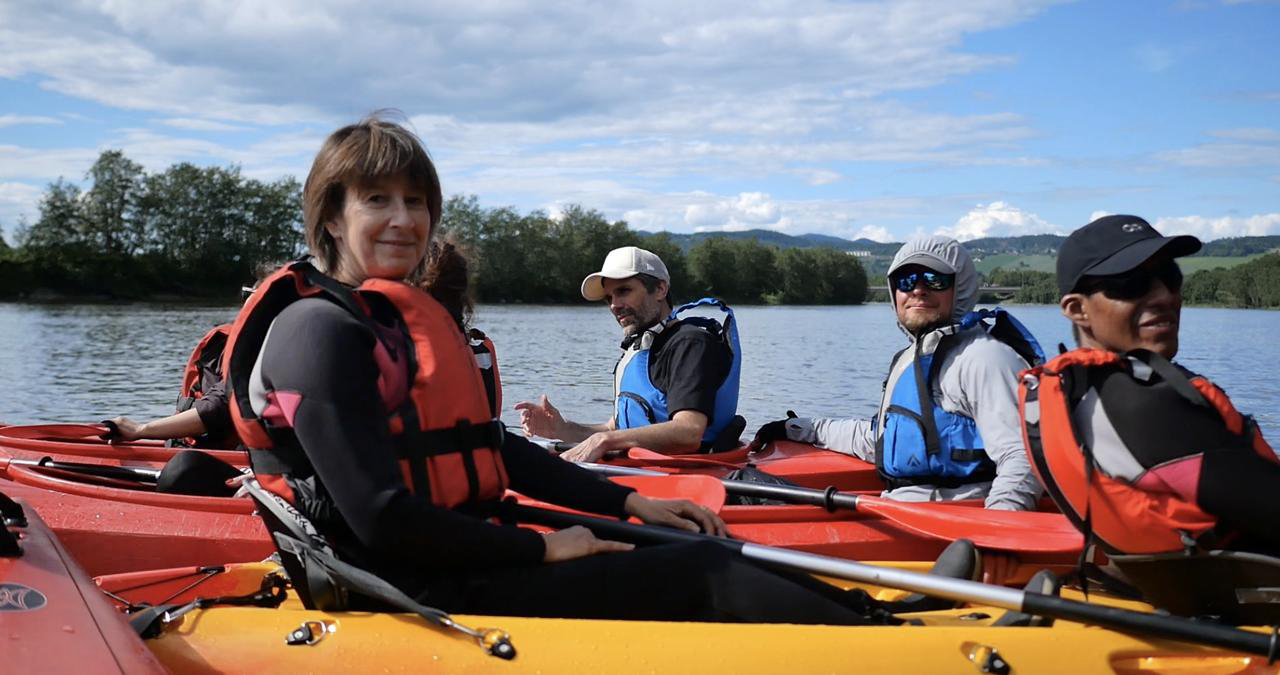
You have just completed the field design trip in Norway with the current CAS group. Did the practical part of the CAS Beyond Systems Thinking meet your expectations?
Richness, density, variety—my expectations were exceeded. Of all my training experiences, this was undoubtedly the most fulfilling with the most significant long-term impact. I was pleasantly surprised to find something so unconventionally futuristic, both in format and content, at a renowned institution like ETH.
What are your most significant learnings from the course so far?
On the one hand, the field trip gave me another boost in my personal and inner development. The trip was so rich in input and points of contact with topics I was already pursuing that I felt strengthened. I was encouraged to be on the right track. But I can’t quite grasp it yet. I have to process the experiences now, and the insights have to mature.
On the other hand, I have gained a network and friends who are driven by curiosity, a thirst for knowledge, courage, and openness, and in particular, by the need to contribute to an urgently needed positive transformation of our life systems.
One of the course’s essential features, especially in the field design trip context, is organic emergence, i.e., allowing for uncertainty, consciously dealing with the unexpected and various forms of embodiment, the physical experience. How did you feel about the situations in which these methods came into play?
I enjoyed them. It’s the little things that we no longer even notice in everyday life. For example, how do we react when we can’t keep to the tight schedule or when something goes differently than planned? How do we deal with this, as individuals and as a group? What alternatives do we find? There are situations in which we cannot intervene. And what happens in the spaces in between, spatially and in terms of content, when we don’t immediately know what will happen next? Do we try to fill these spaces again immediately, or do we get involved in the situation so that something new emerges? Or nothing is created, which is also okay. This shift was impressive to see.
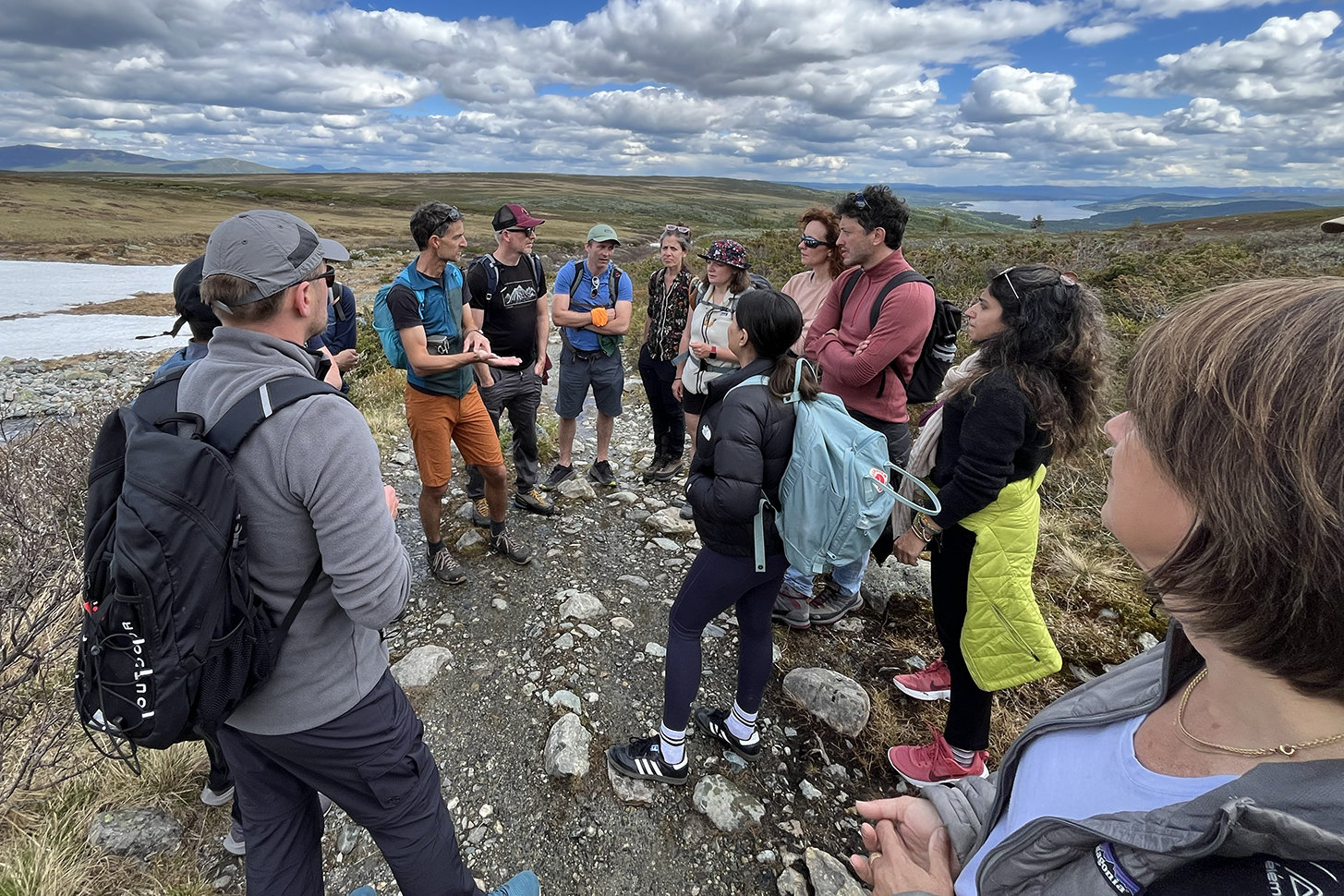
You have been the director of the Laufbahnzentrum Zürich for several years. You have dedicated your professional life to education and organizational and personnel development. With all your experience, why did you still decide to pursue this type of further education yourself?
Because I am looking for a way to combine all these personal puzzle pieces of my career—all the different projects in personnel and organizational consulting as well as in my part-time activities, which I am still pursuing today—for my future actions, this is my meta-Quest**, so to speak.
The Beyond Systems Thinking course takes us beyond traditional ways of thinking to understand better and address complex and interrelated challenges. It helps me to orientate myself on my path. This particularly applies to the current professional challenges in career consulting.
In what way?
Advice for young people and adults on career issues is changing fundamentally. I have 130 employees at the career center. The role of advisors is changing – also due to AI – from advising/providing information to more coaching, accompanying people in a changing world of work characterized by uncertainty and not knowing. This new role requires the ability to question ourselves: we can only credibly support people in transformation situations if we ourselves are constantly transforming in the sense of learning and developing – both as individuals and as an organization.
This is reminiscent of one guiding principle that runs through the MAS executive program: learning-to-unlearn-to-relearn, i.e., the ability to reinvent oneself.
Yes, that’s right. We increasingly lose the ability to take a step back, allow ourselves to be learners in an advisory role, open ourselves up to new things, and tolerate uncertainty, especially in linear career paths. We don’t like to show any weakness.
How does the CAS course help you approach this transformation? Is there a particular element that you can highlight?
I’m only halfway through the course. But the concept of organic emergence is one of the most powerful things I’ve taken away so far. By that, I mean the realization that you don’t always have to take immediate action but that you can also encourage people to pause together and endure uncertainty. I have been trying to transfer this approach to our management team for a few months now. In management positions, we constantly intervene, which overshadows our actual work. We tend to forget to listen and understand in our hectic everyday lives. One way to break these repetitive patterns is to move out of our comfort zone and do something unusual, like the CAS field design trip.
What was such an unusual situation for you during the field trip?
Midsummer does something to you. You’re wide awake until the early hours of the morning. The usual daily routines don’t count. Everyone is upside down. Embedded in this unusual setting, we ventured out to plant trees as one of the many activities that helped us get closer to a bioregion. I’m used to agricultural work. But planting the seedlings in rough terrain in the heat we had that day—as a practical addition to the theoretical systemic context in which we operate—was very impressive.
Thank you for your time.
———————————————————————-
*The CAS ETH in Regenerative Systems: Beyond Systems Thinking is part of a three-CAS series, which, together with a MAS module, comprise the MAS ETH in Regenerative Systems. All modules build upon each other but can be taken in isolation and in different order. Learn more about the programme here: https://systemicdesignlabs.ethz.ch/drrs/#drrs_list.
**The entire MAS executive programme offers a learning-to-unlearn-to-relearn journey with your individual transformative design project, the QUEST, on how to navigate complexity for designing resilient regenerative systems. We deep-dive into regeneration on various systems types and nested governance scales; we embrace worldviews and learn to design as nature; we flourish mind through movement and practice circular design for resilience building in living systems labs. We provide reflected access to quantitative methods and to understanding their relational value with qualitative methods, designerly iteration, AI, embodied practice, and inner development.
———————————————————————-
Find more detailed info on the upcoming CAS#3 Systemic Design course content, the course structure with its hybrid nature and nine modules, and the field design trip to Mallorca here.
Apply for this CAS ETH in Systemic Design – standalone or as part of the MAS in Regenerative Systems – at the ETH School of Continuing Education between 1-31 August 2024, here.


